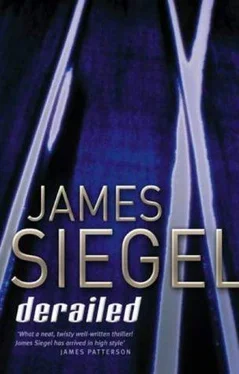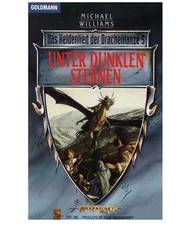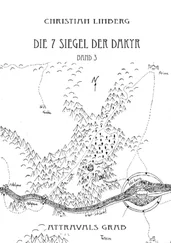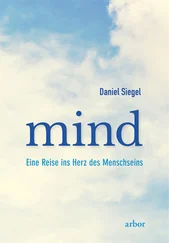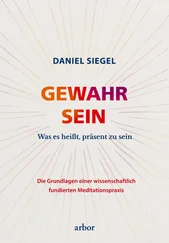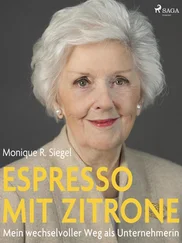Winston was no dope — a 3.7 GPA, and even with a history of drug abuse, his brain cells were still more or less intact.
“I’d pay you,” I said.
“You’d pay me. How nice of you. Great.”
“Ten thousand dollars,” I said, plucking the figure out of the air. I’d paid ten thousand to Vasquez already, hadn’t I—ten thousand seemed about right. Out of Anna’s Fund again, but maybe there’d be a way to replenish it—that I had been giving a little thought to.
“Ten thousand,” Winston said. “Or what? ”
“What do you mean?” I said, even though I knew exactly what Winston meant. I’d been trying to leave that part of it unsaid.
“Or what?” Winston repeated. “If I don’t take the ten thousand. And ten thousand is a lot of money for me—I’ll admit it. But if I turn you down anyway. Then what?”
“Look, Winston . . . all I’m asking you — ”
“You’re asking me to commit a felony. I’m just wondering why you thought I’d say yes.”
Then, after I didn’t answer him: “How did he put it to you, Charles? The rapist. The blackmailer.”
“What?”
“When he asked you for money—he said you pay such and such to me. Or else. Isn’t that how he said it? More or less? So that’s what I’m asking you. I’m asking what the or else is.”
“Look, I think you misunderstood — ”
“No, I understand perfectly. You’re not asking me for money—you're offering it — I understand, very generous of you. But if I turn it down, if I say no thanks — then what? What’s my alternative here?”
He wanted me to say it out loud. That’s all.
I caught you stealing. I caught you stealing, and I can tell. Delivering mail is no great shakes, but prison is a lot worse. Right?
I might have offered to buy him a beer like a long-lost friend, but it wasn’t friendship I was banking on.
But I couldn’t bring myself to say the words.
I’d hoped Winston might do it as a favor—I’d let him off the hook once, and now Winston would get me off mine. That ten thousand dollars might do the trick here. But now that Winston was forcing me to issue the actual threat, I found I couldn’t.
And I thought: I'm not Vasquez.
“Ten thousand dollars, huh,” Winston said. He turned back to the football match: “. . . ball kicked upfield, Dover has it in the left corner . . .” He looked over at the sleeping drunk, who’d momentarily roused himself before sticking his head back down on the bar. He tapped his fingers on the edge of his beer glass — tink, tink, tink, like a wind chime caught in a sudden breeze.
And then he turned back to me and said: “Okay.”
Just like that.
“Okay,” he said. “Fine. I’ll do it.”
TWENTY-TWO
I called Tom Mooney and told him I wanted to talk to him about something.
About music production.
It was the three-day work week between Christmas and New Year’s. The time of year when people attempt to put their affairs in order and make a New Year’s resolution or two. To lose those few extra pounds, for instance. I was formulating a weight-loss plan of my own. I had approximately one hundred and eighty extra pounds sitting on my neck. I needed to get rid of it.
Tom showed up five minutes early and made an elaborate show of taking off his coat and closing the door.
“Okay,” Tom said when he sat down, “so what do you want to talk about?”
“Kickbacks,” I said.
But maybe I’d been too blunt, because Mooney suddenly edged back in his chair. Was it possible there was a kind of code you were supposed to use for these things, a language of men in the know?
“Kickbacks — what’s that?” Tom said. “Are we in the Teamsters or something? The last time I looked, we shoot commercials.”
“T and D Music,” I said. “So you also write songs.”
“Hey, we’re a full-service production company. Whatever it takes.”
“And that’s what it takes?”
“Have you seen Robert’s reel lately?” He was trying to be funny, I guess, because he seemed to be waiting for me to laugh.
I didn’t feel like laughing today.
“How long has this been going on?” I asked. “You and David?”
“Look, Chaz. Did you call me over here for an interrogation? Because maybe I missed something when you called me. I thought you called me over here for another reason. Correct me if I’m wrong.”
I blushed. Maybe there was another language, or maybe I knew the language but was incapable of speaking it. First with Winston in the bar and now here. I had called Mooney over here for another reason, not to condemn him, not even to sweat all the dirty little details out of him. Just to put out my hand and say, Count me in.
So maybe it was time I dropped the air of moral superiority — that’s what Tom was saying. And what’s more, he was right.
“Twenty thousand,” I said.
Kind of amazed that the words had actually made it all the way out of my mouth. Twenty thousand as a bald statement of fact — no equivocation, no rising consonant lilting into a plea. Twenty thousand — for the ten I owed Winston and the ten I’d already given out. And I wondered if this was the way it was done — or if I’d been expected to slide a scrap of paper across the table with the figure scrawled in pencil.
But Tom smiled again—the kind of smile that says, You are one of us, aren’t you.
I felt a bit queasy—but less than I expected. Was this how it happened? Losing yourself a little at a time until suddenly there was no you there anymore? Someone who used your name, slept with your wife, hugged your kid, but wasn’t actually you anymore?
“Hey,” Tom said. “I told you I was Santa Claus, didn’t I?”
The next day, I met Winston one block north of the number seven subway tracks in the mostly empty parking lot of a Dunkin’ Donuts in Astoria, Queens.
Winston’s idea. Aren't you supposed to meet in out-of-the-way places? he’d said after asking me if I knew the only pitcher with five Cy Young Awards.
Roger Clemens, I'd said.
Winston was waiting for me in a white Mazda with non-matching hubcaps and a busted taillight. The windshield was covered with spiderweb cracks.
I drove up in my silver Mercedes sedan and felt embarrassed about it. I parked at the far end of the lot, hoping Winston wouldn’t see me. But he did.
“Over here,” he yelled.
When I made it to the car, Winston leaned over and opened the passenger door.
“Hop in, bud.”
Bud hopped in.
“Know my favorite song?” Winston asked.
“No.”
“ ‘Money.’ By Pink Floyd. Know my favorite artist?”
I shook my head.
“Eddie Money.”
I said: “Yes, he’s good.”
“My favorite movie? The Color of Money. Favorite baseball player of all time — Norm Cash. Second favorite — Brad Penny.”
“Yes, Winston,” I said, “I have your money.”
“Hey, who was asking for money? ” Winston said. “I was just making conversation.”
A number seven train rumbled over the el, showering sparks down onto the street.
“But now that you mention it,” Winston continued, “where is it?”
I reached into my pocket. It's burning a hole in my pocket — isn’t that the expression? A messenger from Headquarters Productions had dropped off the manila envelope yesterday.
“Five thousand,” I said. “The other half after.”
“You see that in a movie?” Winston asked, still smiling.
“What?”
“The ‘other half after’ stuff? You see that in a movie or something?”
Читать дальше
